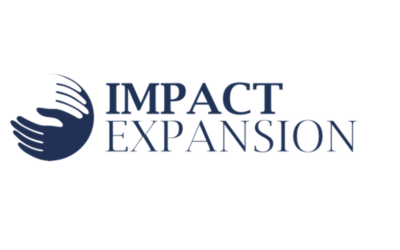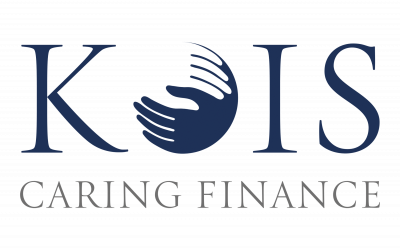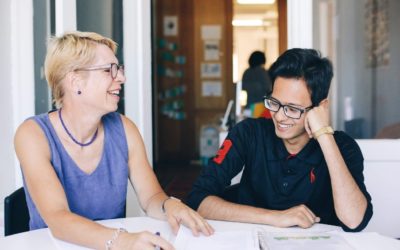Improving access to sexual and reproductive health services for adolescent girls in Kenya
Project details
In Kenya, 23% of girls aged 15-19 who wish to have access to contraception have an unmet need. Through a DIB in collaboration with CIFF and UKAID, KOIS is setting up a Development Impact Bond to expand availability and uptake of sexual and reproductive health services among adolescents in Kenya.Kenya has already shown great strides forward in Sexual reproductive health
In 2012, Kenya committed to the Family Planning 2020 global partnership. Since then, Kenya already exceeded its 2020 target of 58% modern contraceptive use by married women. However, there needs to be specific attention given to expand equitable access to quality care. This is especially true when it comes to adolescent girls. Young women face conservative social norms in Kenya. These prevent them from receiving effective communication and access to adolescent-friendly sexual and reproductive health (SRH) services.
More work is needed to help women access modern contraception
In Kenya, 98% of all adolescent girls know about at least one modern contraceptive method. However, 23% of girls aged 15-19 who wish to have access to contraception have an unmet need. As a result, 17% of all women who sought post-abortion care in public facilities were adolescent girls of 19 years or younger. Of these, 45% went through an unsafe abortion and experienced severe complications. The Government of Kenya is willing to address this issue. They are currently working towards achieving the revised targets of increasing modern contraceptive prevalence rate among adolescent women.
Terms of the bond
Launch
2020
Duration
18 months
Amount
£ 5M
Expected return
2% IRR
ITH: increasing the use of SRH services among adolescent girls
In Their Hands (ITH) is a teen-centered programme incentivizing adolescent girls to use subsidized sexual and reproductive health (SRH) services. Through their actions, they reduce the incidence of unintended pregnancies among Kenyan adolescent girls. The programme uses behavioral economics in the form of nudges, such as reward vouchers for the girls. These promote positive health behaviors and allow girls to rate the quality of the services received. All in all, the ITH programme contributes to offering a safe space and quality care to adolescent girls.
To help improve sexual and reproductive health of adolescent girls in Kenya, UKAID and CIFF wish to scale up the actions of ITH through a Development Impact Bond (DIB).
The DIB aims to expand availability and uptake of sexual and reproductive health services among adolescents in Kenya. The first tranche of the DIB will last for 18 months and stands for a proof of concept to leverage funds for a second tranche. With both tranches, the DIB will last 5 years.


Looking both at short and long-term impacts
The impact bond will foster innovation by transferring delivery risk to the investor. The targets will also incentivize the service providers to improve its operational efficiency. As a result, we should see an increase in consistent use of SRH services, as well as diversity in enrollment and distribution channels. These last points are key to improve further ITH’s cost-effectiveness and provide increased value for money to the outcome funder.
The ITH DIB integrates short-term (SRH uptake), intermediate (contraceptive prevalence rate) and long-term (adolescent birth rate) payment outcomes. Each of them will have its own financial weight, aligned with the service provider’s ability to influence it. All the while, the comprehensive impact measurement and reporting frameworks put in place will provide important insights on how much impact the intervention has on long-term behaviour change indicators.
Kenyan teenagers have never been better connected, better informed or as well educated as they are today. And while 97% of them know about contraception, Kenya’s rates of teenage pregnancy and new HIV infections are among the highest in the world. ITH aims to normalize adolescent sexual health and increase uptake of teenage-friendly health services through nudges. Structuring a DIB to finance the scale-up of ITH required to carefully think about what success means. This ensures that the payment metrics help the programme go beyond what it is currently achieving. It also allows focus on consistent use of services. With these measures, the DIB can achieve its ultimate goal of reducing unintended pregnancies among adolescent girls.
Expected Impact of the DIB
%
of sexual and reproductive health service visits realized by returning girls
Discover our other projects
Impact Expansion: investing to tackle social exclusion, healthcare challenges and climate change in Europe
Impact Expansion was founded in 2022 through a covenant of partners from KOIS and Milestone. On the strength of their expertise in impact investing with a strong buy-and-build track record, the fund invests in companies during their growth stage in 3 focus sectors: Healthcare, Education & Employment, and Environment.
Club deals: since its inception, KOIS has initiated and managed a number of impactful club deals
KOIS and Quadria capital co-founded HealthQuad in 2016. Since then,
HealthQuad has become India’s leading Healthcare Focused Venture Capital Fund. The fund typically invests in early stage companies with a high disruption potential in the healthcare industry. HealthQuad aims to contribute to improving affordability, accessibility and quality of healthcare services in India while generating attractive returns for investors.
Multi-country Social Outcomes Contracting to tackle unemployment in Europe
European Union Member States have been confronted with the challenge of unemployment for several decades with relatively similar characteristics. Seeking innovative approaches to tackle this common issue, KOIS has supported the European Investment Advisory Hub (EIAH), in testing the preliminary feasibility of a Pan-European Social Outcomes Contracting (SOC) scheme. In this study, we explore the potential benefits and hurdles of a multi country Social Outcomes Contracting in three pilot countries, France, Belgium and the Netherlands.




